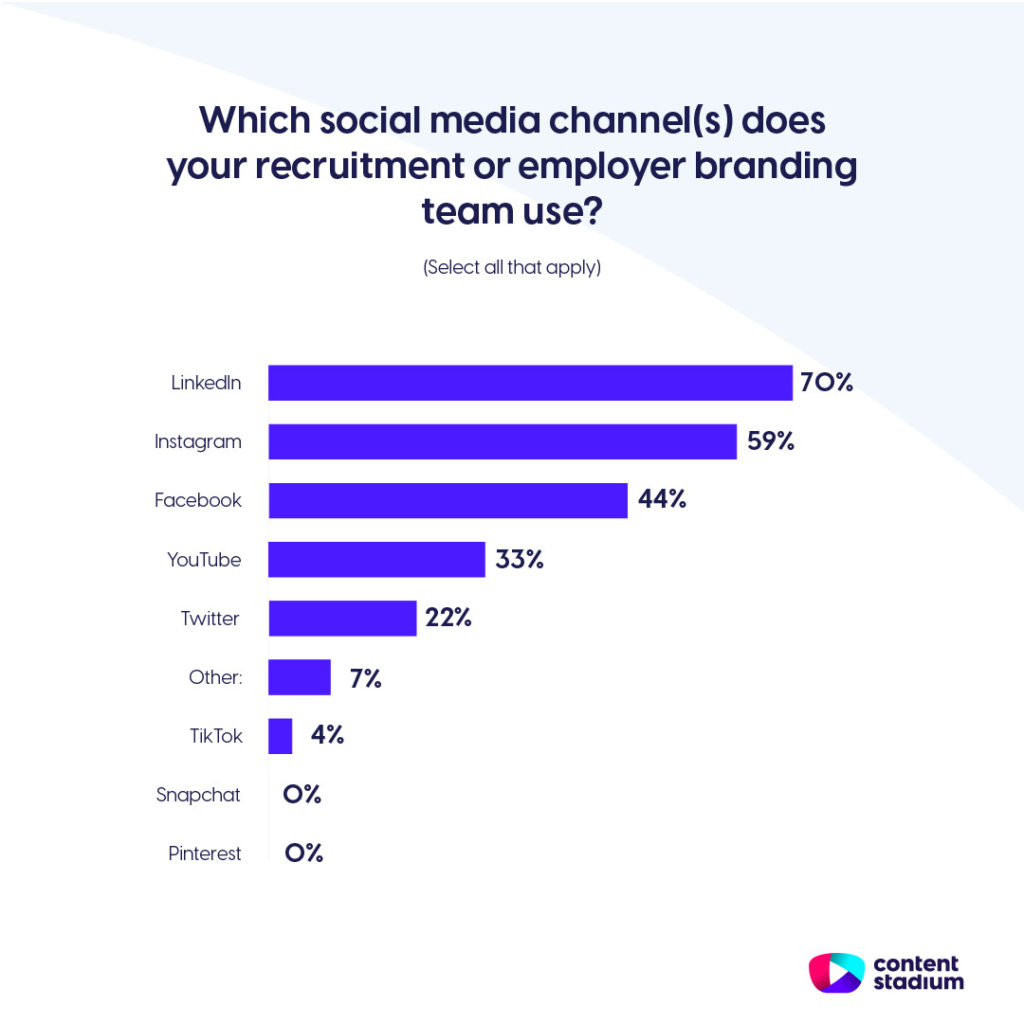Key Takeaways
- A robust employer brand puts your firm in the spotlight and propagates your company values.
- More candidates apply for firms that have a solid employer brand.
- Companies with good employer branding have more satisfied and productive workers.
Employer branding is how a company sets itself apart and markets itself to potential job candidates. It distinguishes you from your competitors, and that is what essentially makes it stand out.
Today, around 94% of candidates are more inclined to apply for a position posted by a company that actively manages its employer brand. What’s more? Better branding will lead you to 50% more qualified applicants.
Job applicants are paying more attention to the reputation of employers and the corporate culture of companies.
It’s now more crucial than ever to reconsider your employer branding strategy!
Employer Branding Best Practices
Your employer branding must be strong in the context of the shifting labor market conditions brought on by COVID-19 to positively influence how your prospective and current employees, as well as the general public, view you.
Here are some employer branding best practices that you can think of adopting today:
1. Set and Promote a Clear Vision of Your Organization’s Purpose
The first crucial question you must ask yourself is: What values and goals does your organization uphold?
For employer branding to be successful to outsiders, you must define your company’s value and what it stands for. You must first have a firm understanding of your own values, objectives, and culture before you can articulate them to others. Once this vision has been established, building branding messages on your website and social media will be simpler.
You should consider which values are best suitable for your organization. You can’t adhere to each one; none would relate to your corporate identity. The corporate values you choose will shape your corporate culture, which will greatly impact your employer’s branding. Your values must be specific, clear, and practical to your organization.
2. Activate Your Company’s Website and Social Media Efforts
Through social media, employers can reach out to potential candidates and present a compelling picture of the company’s culture and values. Even at a high level, interaction around social media posts about diversity & inclusion and Covid-19 conveys a strong message that consumers are more likely to connect with businesses that care and address the current issues.
The below infographic shows the most preferred social media platforms used by companies to improve their employer brand.

Source: Content Stadium
Use important and relevant issues to drive engagement on your company’s social media pages and demonstrate your company’s understanding of social issues. Additionally, you can take concrete steps to demonstrate how your company addresses issues like the gender pay gap, workplace diversity, and employee well-being during difficult times.
3. Share Stories of Your Employees
According to a 2019 Harris Poll for Glassdoor, the best candidates desire more than just a job description: When assessing whether a job opportunity or company is a good fit for them, 52% of employees and job seekers see company ratings and evaluations from employees as some of the most useful information. Furthermore, when it comes to sharing information, prospects have three times more faith in the present employees of a company.
In a job posting or website, describing the corporate culture and working environment is insufficient. People require timely, reliable, and timely visual information provided by actual employees. A spontaneous or interview-style format is more authentic; however, some companies generate movie-like displays of their workplace.
Therefore, ask your present employees to offer their authentic, first-hand experiences if you want future hires to understand what it’s like working for your company. After that, You can include them in the job description, social media platforms, and your company’s website.
4. Make Remote Employment Options Available
It’s crucial to provide remote work options because the pandemic-related health concern hasn’t passed, and more candidates are preferring remote opportunities than ever now. Employers are adjusting fast — according to a recent survey, 74% of CFOs want to permanently shift certain employees to remote work.
Remote work options for your employees reduce the likelihood of them becoming sick and improve service continuity. Since there is a greater likelihood that one of your employees will become ill, minimizing this risk is essential to the efficiency of your company in today’s time.
Make sure to mention in your job advertisement if the position you’re offering allows for remote work. The majority of job posting websites allow you to indicate a remote location for your job offer. Many technical roles like Node Js developers and React Native developers prefer working remotely and are likely to accept those job offers.
5. Promote Pay Equality
Just as clients demand accessibility and diversity in advertising, employees expect their companies to approach employment in a non-prejudicial manner. Promoting equal pay possibilities clearly indicates a contemporary company brand that values its employees.
According to UN Women, “women’s average salary is typically lower than men’s across all nations, and for all levels of education, and age groups.” According to additional research, 18% of women think that gender matters in the workplace. Furthermore, 20% of women believe they have lost a promotion to a man.
Therefore, furnishing an exceptional employer branding involves including non-discriminatory terms, speaking out about the issue, and displaying an excellent method of providing equal pay.
6.HR and Marketing Cooperation
The organization needs to work together to build a reputable employer branding in these dynamic times. Since the hiring process is increasingly digital, coordination with the marketing department is unavoidable. The HR department cannot carry the burden alone.
The collaboration between HR and marketing can create strong brand recognition, provide a quality user experience, and effectively communicate company values. To prepare for the upcoming year, however, coming up with creative solutions, using technology, and tweaking the hiring processes ahead of time can further boost your employer’s branding position.
Building strong employer branding makes it easy to draw in top prospects, lowers the cost per hire, and motivates your staff to take leadership roles inside the business. It is a constant process and requires attention all year long, not just before a particular recruitment drive. Building and maintaining a great employer brand involves commitment and a sound plan.
We hope our list of employer branding best practices will assist you in getting started or refocusing your efforts where they are most required!
Contact Benchpoint right away, a healthtech recruitment agency with years of proven experience. We’ll help you solidify your employer brand across multiple platforms and attract the most talented candidates.
